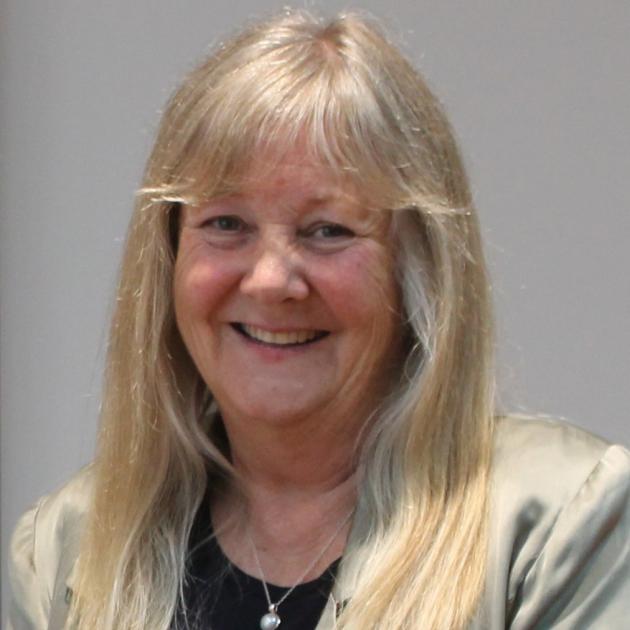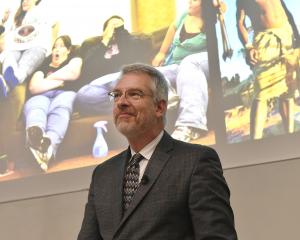
No, not because its MPs were complaining about the National Party’s views of Te Pati Maori (which they were), but because they were complaining about that well-known political mafiosi, Invercargill National MP Penny Simmonds.

"This plan is Minister for Vocational Education Penny Simmonds’ personal vendetta," Shanan Halbert thundered.
"This is a terrible move from a minister with a vendetta, with no plan, no funding for vocational education," Rachel Boyack said.
Ginny Anderson’s contribution was somewhat less on the nose — she accused Ms Simmonds of having "a singular purpose" — but you know that she meant the "V" word.
So, what was Labour getting so steamed up with Ms Simmonds about?
The Education and Training (Vocational Education and Training System) Amendment Bill basically undoes a huge chunk of work which Labour had done while it was in government, to merge the country’s various polytechnics into the mega Te Pukenga organisation. The mega merger was, you may recall, the work of one Chris Hipkins, a man of some prominence in Labour’s ranks.
The creation of Te Pūkenga had laudable aims, such as streamlining procedures and policies and reducing cost duplication.
However, its critics — notably the former Southland Institute of Technology chief executive, one Penny Simmonds — claimed it stripped away local autonomy and punished successful polytechnics by using their better bottom lines to prop up less successful polytechnics.
After a brutal gangland war otherwise known as the 2023 election, Don Luxon took control of the mean streets of New Zealand and Capo Simmonds was placed in charge of the vocational education sector, making the woman tasked with making Te Pukenga sleep with the fishes. If that be a vendetta, then so be it.
"Te Pūkenga will be referred to as the New Zealand Institute of Skills and Technology and will remain as a transitional entity for a one-year period before being disestablished by 31 December, 2026, if not before," Ms Simmonds said.
"Each polytechnic will be funded independently and will have local governance and management. For most, they will continue operating at their current campuses across the country. Some polytechnics will be established as stand-alone entities; others requiring additional support will be designated members of a federation or merged, with Cabinet considering their options later."
And as for why Te Pūkenga had to be offed, Ms Simmonds slated it as being an expensive failure.
"Its push to centralise and standardise polytechnics and work-based learning was wrong, and it cost this country dearly."
Ms Simmonds will not have been surprised at the level of Labour’s ire, although she may have been a touch dismayed given the considerable amount of praise her first salvo at vocational education reform, a revamp of work-based learning, received when it was announced in April.
She harked back to those glory days, saying that those changes were just what apprentices, learners and industry had been calling for — decentralised vocational education with training based around the specific needs of industries.
"It [the Bill as a whole is] for all those apprentices, trainees and employers involved in work-based learning who’ve struggled to get support from an overly bureaucratic and remote Te Pūkenga head office in Hamilton," she said.
"This redesign is also for the communities up and down the country who’ve watched on in frustration as their local polytechnics have been stripped of local innovation and control."
She probably got most people on side as soon as she mentioned Hamilton.
A more measured assessment of the Bill came from Dunedin Green list MP Francisco Hernandez, who did not even come close to using the "V" word, but certainly raised several cogent objections to Ms Simmonds’ proposals.
"We have no philosophical objection to the idea that there could be thriving, independent vocational institutions; however, this legislation does not establish that," he said.
"However, this disestablishment has been severely disruptive to the hundreds of staff around the country who’ve been let go; to the thousands more that have had to go through job consultations that have rescoped, descoped and unscoped their roles."
Mr Hernandez further asserted that the reforms potentially opened a door for asset sales and privatisation.
"It’s asset sales and privatisation. That’s absolutely what’s going on. So, we would like to see guardrails against that," he said.
"Let’s have some support for thriving, independent polytechnics. Let’s actually put our money where our mouth is by supporting funding for them and not disestablishing them."
Speaking of scrapping things
As foreshadowed last week, Parliament did indeed pass Southland National MP Joseph Mooney’s novel notice of motion regarding legal training.
To clarify, Mr Mooney sought to overturn a regulation that tikanga Maori be a compulsory component of all compulsory legal subjects.
He had no objection to tikanga being taught, nor with the NZ Council of Legal Education having acted within its powers to make tikanga a standalone compulsory subject.
However, he and the majority on the regulations review committee found that making tikanga a compulsory part of all compulsory subjects was "unusual and unexpected" and should be disallowed.
So did a majority of the House, but not without a heap of scorn from the Opposition benches.












